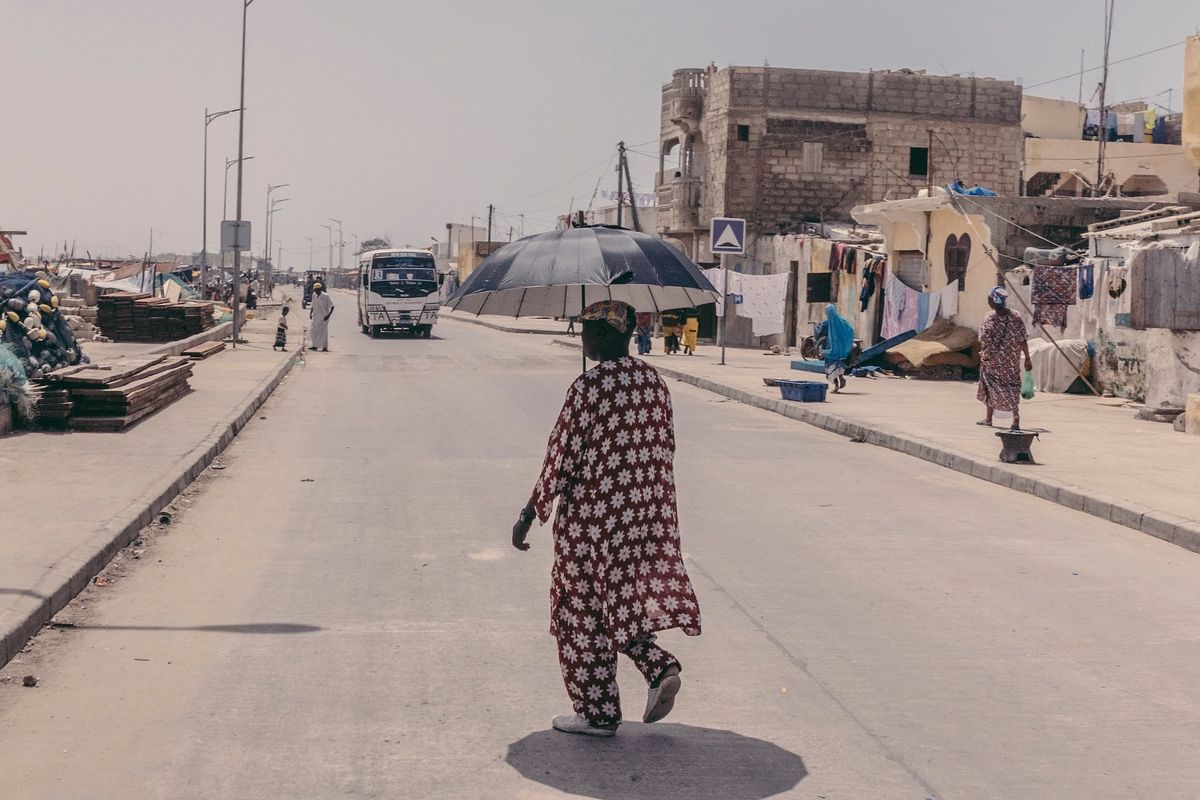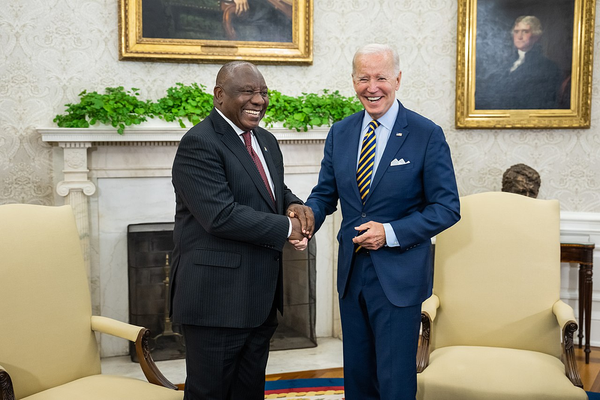Could Àjàlá Travel Around Africa in 2023?
The recent announcements by Presidents Ruto and President Kagami to lift visa restrictions for all Africans in Kenya and Rwanda are a positive step that'll foster unrestricted intra-African movement.

Ajala travelled all over the world
Moshood Adisa Olabisi Ajala, widely known as Ọlábísí Àjàlá, was a Nigerian journalist, travel writer, actor, and Lagos socialite famous for travelling the globe on his trusty scooter. He documented his globe-trotting experience in his book: An African Abroad published in 1963. He was greatly celebrated for his adventurous spirit, with elaborate receptions rolled out for him in every new country he landed in. His trusty scooter was signed by notable personalities like The Shah of Iran, Nehru of India, and Khrushchev of The Soviet Union, among others.
Some questions have been tugging at my mind since the announcement by President Ruto of Kenya, followed by a similar statement by President Kagami of Rwanda, that Visa restrictions will be lifted for all Africans who want to visit Kenya and Rwanda, by the end of the year 2023. Would Ọlábísí Àjàlá of blessed memory, have been able to travel across Africa the way he was able to travel the world in 2023'? Also, what would be the potential impact on geopolitics, trade, and migration of an unrestricted Africa, to Africans?
A History of Restriction
To properly understand the contentious issue of the restricted intra-African movement, I had to go back in time to how African countries got their present borders. It's textbook knowledge that Africa was carved up for colonisation in the infamous 1885/86 Berlin conference conferred by Otto von Bismarck, the first chancellor of Germany at the request of King Leopold II (The butcher of Congo). Africa wasn't represented at the conference, however, the borders still hold to this day save for a few changes like the creation of South Sudan.
The African leaders who championed the independence movement in the 1940s/50s had the opportunity to address the unbefitting borders but chose not to because it could potentially destroy their hard-won independence, and could severely impact international recognition for the new countries. The restrictive intra-African movement derived from the inherited colonial-drawn borders.
A Not So Welcoming Continent
You would be right to think if Africa couldn't redraw her borders, she could at least liberalize local movement. But that hasn't been the case. The Statista chart shows how restricted Africa is to Africans. Benin, Seychelles and The Gambia are the only countries that don't have a visa requirement for other Africans.
A brief analysis of the chart reveals that West Africa is notably more open to intra-African travel, while North Africa, led by Egypt and Sudan, enforces the strictest visa requirements, perhaps a reflection of their history with colonialism and military dictatorship. The Democratic Republic of the Congo, situated in Central Africa, aligns with the most restrictive African states, prompting questions about the potential influence of its colonial history on its diplomatic stance.

With this many restrictions, I believe Àjàlá would have had a very hard time transversing the continent. While most countries issue visas on arrival, having to deal with the undue headache, needless profiling at the borders, additional expenditure and wasted manhours just to visit other countries as an African is discouraging. A sharp contrast to how Europeans experience movement across Europe.
Potential Impact
Olabisi Àjàlá would, however, be pleased with the announcements by President Ruto and President Kagami. I know I am. The potential impact on trade, security, tourism, geopolitics, local politics, and ethnic relations of an unrestricted Africa would be significant:

- Trade:
Unrestricted travel can enhance intra-African trade, which has historically been hampered by barriers such as visa requirements and bureaucratic red tape. With easier movement of people, goods and services can flow more freely across borders. This could lead to increased economic integration, stimulate the growth of local industries, and boost regional trade partnerships. African countries could leverage their diverse resources and expertise more effectively, potentially reducing their reliance on external markets. Crime would flow more easily too, however, the capacity to deal with transcontinental crime would have to be developed. That would give rise to the opportunity to develop human capital in that regard. - Security:
While unrestricted travel may raise security concerns, it can also promote better security cooperation. Increased cross-border interactions can facilitate information-sharing among African nations to combat common threats such as terrorism, human trafficking, and drug smuggling. Furthermore, a more interconnected Africa might lead to increased political stability and conflict resolution, as nations with a vested interest in their neighbours' security are likely to collaborate to maintain peace. - Tourism:
Easier travel within Africa can boost the tourism industry. The continent has a vast array of attractions, from natural wonders to rich cultural heritage. Reduced travel restrictions can lead to increased tourism, creating economic opportunities and jobs. However, managing tourism sustainably and preserving local cultures and environments will be essential to ensure that the benefits are shared equitably. - Geopolitics:
The geopolitics of Africa could shift as unrestricted travel fosters closer ties among African nations. African countries may find themselves less dependent on foreign aid and influence, leading to a rebalancing of power dynamics. This could also impact the relationships between African countries and external players, including the influence of global powers. - Local Politics:
The political dynamics within individual African countries may be influenced by unrestricted travel. Leaders might need to adapt their policies to address the needs and demands of a more mobile population. Enhanced travel and communication can also lead to the spread of ideas and practices, potentially leading to greater demands for democratic reforms and transparency. A potential negative impact would be the deliberate movement of people to influence voting during elections or sway census figures. African countries will need to leverage technology to make identification seamless. - Ethnic Relations:
Unrestricted travel may have complex implications for ethnic relations in Africa. On the one hand, it can facilitate greater cultural exchange and understanding among diverse ethnic groups, potentially reducing tensions. On the other hand, it may also expose underlying ethnic disparities, leading to competition for resources and power. Governments will need to carefully manage ethnic relations to ensure that unrestricted travel contributes to peace and unity. One way ethnic relations will potentially benefit immensely is the reintegration of ethnic communities indiscriminately cut off by arbitrary colonial borders. The Yoruba in the Benin Republic will better integrate with their keen in Nigeria for instance.
Conclusion
Realizing the full potential of unrestricted travel in Africa hinges on several critical factors. These encompass substantial investments in identity, healthcare, and educational infrastructure, the alignment of visa and immigration regulations, fostering intergovernmental collaboration, addressing security challenges, and ensuring the fair distribution of economic advantages among diverse societal segments.
Amid renewed endeavours led by Kenya and Rwanda to facilitate intra-African travel, the success of this undertaking rests upon the unwavering dedication of African governments, regional institutions, and the global community to champion and bolster the movement towards dismantling the barriers that have long hindered progress.

If you enjoyed this article, kindly subscribe to our weekly newsletter: "News From Around The Motherland," to stay updated on opinions, articles and in-depth explorations of diverse African subjects. Thanks for reading.





